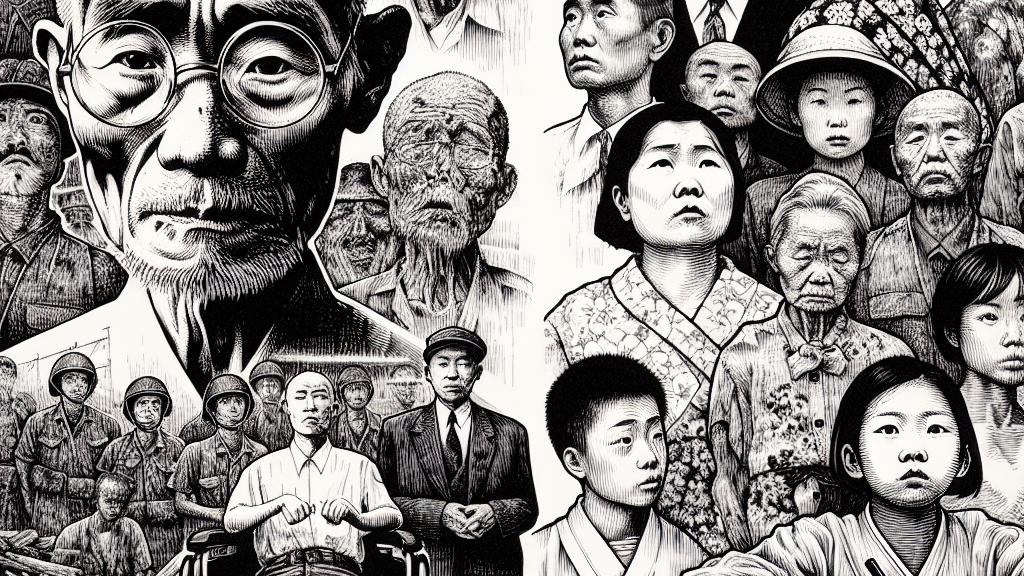A Reckoning for Atomic Bomb Survivors: Nobel Prize Recognition 80 Years Later
Overview
- Nihon Hidankyo, the collective of atomic bomb survivors, has remarkably received the 2024 Nobel Peace Prize, marking a significant milestone in the fight against nuclear weapons.
- Their passionate advocacy not only recounts the profound horrors of Hiroshima and Nagasaki but also pushes for global disarmament amidst rising nuclear threats.
- This prestigious award shines a spotlight on the resilience of hibakusha, urging unified global action for a world free of the nuclear peril.

Understanding the Devastation of Hiroshima and Nagasaki
In August 1945, Hiroshima and Nagasaki were forever etched in history as the sites of unimaginable suffering. On August 6, the atomic bomb nicknamed 'Little Boy' obliterated Hiroshima, leading to the instantaneous deaths of over 80,000 people, and countless others succumbed to the aftermath. Three days later, Nagasaki faced a similar fate with 'Fat Man' unleashing its destructive power, resulting in an additional 70,000 deaths. This harrowing event created a countless number of survivors—often referred to as hibakusha—who endured not just physical injuries but also deep psychological scars. Their lives have been a testament to resilience, as they navigate survivor's guilt while becoming powerful advocates against the very weapons that destroyed their worlds. The hibakusha's stories serve as both a warning and a call to action, reminding us of the fragility of life and the dire consequences of unchecked military might.
Nobel Prize Recognition: A Momentous Acknowledgment
On October 11, 2024, the Nobel Committee selected Nihon Hidankyo to receive the Peace Prize, a historic decision that acknowledges decades of tireless advocacy against nuclear armament. This honor is not only a tribute to the bravery of the hibakusha but also an urgent reminder of the world’s responsibilities as it grapples with the complexities of nuclear power. The committee highlighted that these survivors help people 'to describe the indescribable'—the pain, the loss, and the longing for a peaceful existence free from the threat of nuclear annihilation. Indeed, their plight underscores the importance of remembering history so as to prevent the recurrence of such tragedies. As the hibakusha courageously share their stories, they make a fundamental point: the very existence of nuclear weapons poses a danger not only to those in their immediate environments but also to humanity as a whole.
Mobilizing a Movement for Global Disarmament
Since the formation of Nihon Hidankyo in 1956, the group has played an instrumental role in advocating for global nuclear disarmament. Their relentless efforts led to significant milestones, including supporting the Treaty on the Prohibition of Nuclear Weapons, which came into force in 2021. This comprehensive treaty is a breakthrough, prohibiting nations from developing or testing nuclear weapons—a crucial stride toward a safer world. The hibakusha have demonstrated that personal testimony can spark widespread movements, seen in events like the powerful exhibition organized in Toronto in 1975, which catalyzed a robust anti-nuclear sentiment throughout Canada. In Brazil, figures such as Takashi Morita have mobilized communities, highlighting the global relevance of their experiences. In an age where tensions rise and the threat of nuclear conflict looms, Nihon Hidankyo’s call for disarmament resonates with renewed urgency, advocating for not just a nuclear-free world but a commitment to enduring peace celebrations, holding onto hope for generations yet to come.

Loading...